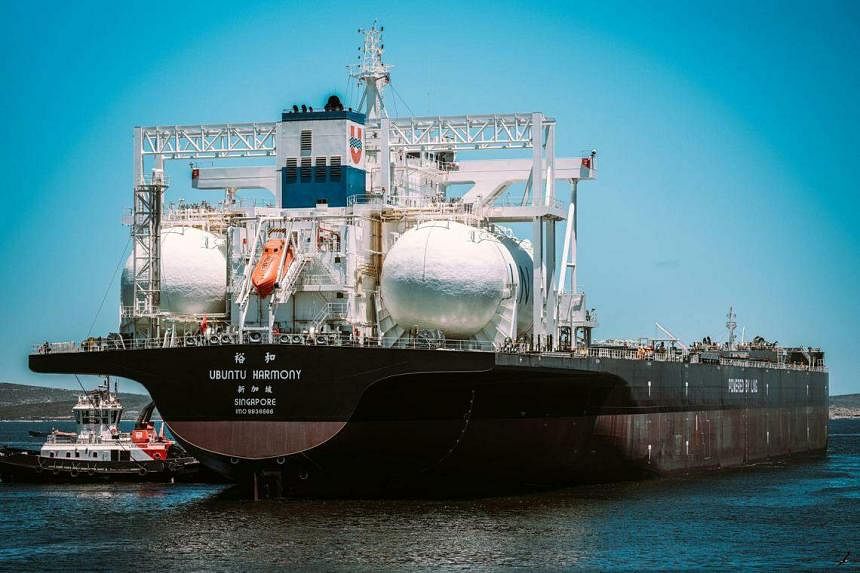SINGAPORE – Global mining company Anglo American expects significant carbon emissions reductions with its new dual-fuelled liquefied natural gas (LNG) vessels, the first of which completed its first full voyage in March from South Africa to China.
Mr Peter Lye, global head of shipping at Anglo American, told The Straits Times that the Singapore-flagged vessel Ubuntu Harmony, equipped to run on LNG and marine fuel oil, is estimated to allow for an emissions reduction of about 35 per cent as compared to similar sized ships using traditional marine fuels for the same voyage.
The company, which is headquartered in London and has its commercial operations anchored in Singapore, has to date received five dual-fuelled ships. The remaining five are expected to be delivered between May 2023 and the first half of 2024, he added.
“The Ubuntu fleet will be instrumental in helping Anglo American deliver on our ocean freight decarbonisation ambition, first outlined in our 2021 Climate Change Report in the context of the company’s wider efforts to reduce emissions in its value chain,” he noted.
He added that by 2030, Anglo American aims to reduce carbon emissions for its shipping activities by 30 per cent. It is targeting becoming carbon neutral for its controlled ocean freight by 2040.
Mr Lye noted that the transition to LNG also offers key opportunities for the deployment of bio-LNG, a biofuel with the same chemical composition of traditional LNG but derived from biogas as opposed to natural gas.
Plans for the dual-fuelled LNG vessels stemmed from Anglo American’s desire to operate low carbon ocean freight that could transport essential metals and minerals from its mines to customers in a sustainable way.
“LNG marine fuel offers significant environmental advantages over traditional fuel oil and is fast expanding in its availability,” he said.
“Compared to conventional fuel options, the use of LNG eliminates sulphur oxides, considerably reduces nitrogen oxides and particulate matter from vessel exhausts and cuts carbon emissions by approximately 25 per cent.”
The shipping industry is seeking to reduce its reliance on oil as it tries to meet carbon emission reduction targets set by the United Nations’ International Maritime Organisation (IMO).
These include cutting carbon emissions by 40 per cent from 2008 levels by 2030, and overall greenhouse gas emissions by 50 per cent by 2050.
LNG, methanol and biofuels are among the more popular alternative marine fuel options for ship owners at the moment.
Mr Lye added: “An important aspect of our work in this space is the commitment to accurate emissions tracking and reporting.”
It noted that Anglo American was one of 25 founding signatories of the Sea Cargo Charter, formed in 2020 to establish a framework for assessing and disclosing the climate alignment of ship chartering activities globally.
“In last year’s inaugural report, Anglo American’s climate alignment proved to be on track to meet the targets set by the IMO decarbonisation strategy, as well as our own ambition,” he said.


